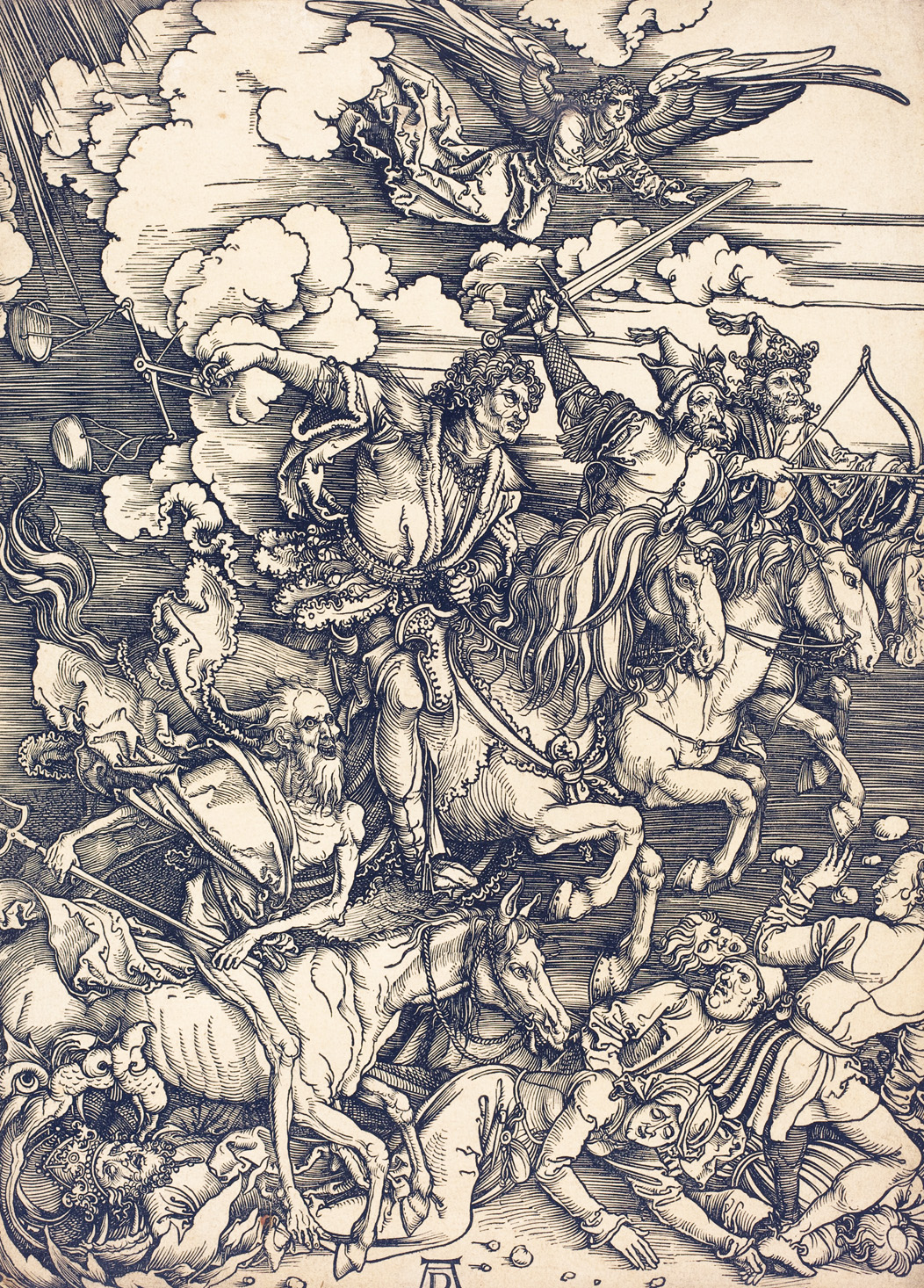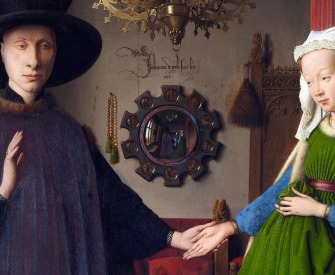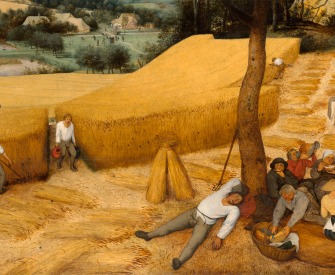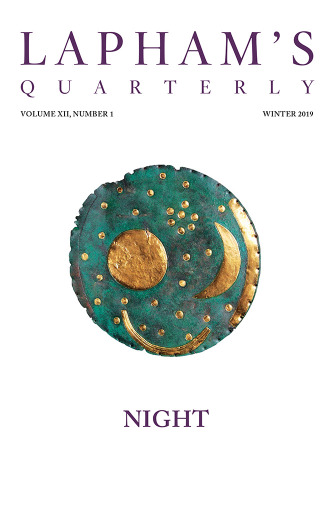When I awoke, I found myself lying under a glass case, in a high, cheerless room. There was a label over my head; I turned and read it. It ran as follows:
MAN—ASLEEP
PERIOD—NINTEENTH CENTURY
This man was found asleep in a house in London, after the great social revolution of 1899. From the account given by the landlady of the house, it would appear that he had already, when discovered, been asleep for over ten years (she having forgotten to call him). It was decided, for scientific purposes, not to awake him, but to just see how long he would sleep on, and he was accordingly brought and deposited in the Museum of Curiosities on February 11, 1900.
Visitors are requested not to squirt water through the air holes.
An intelligent-looking old gentleman, who had been arranging some stuffed lizards in an adjoining case, came over and took the cover off me.
“What’s the matter?” he asked; “anything disturbed you?”
“No,” I said, “I always wake up like this, when I feel I’ve had enough sleep. What century is this?”
“This,” he said, “is the twenty-ninth century. You have been asleep just one thousand years.”
“Ah! Well, I feel all the better for it,” I replied, getting down off the table. “There’s nothing like having one’s sleep out.”
“I take it you are going to do the usual thing,” said the old gentleman to me, as I proceeded to put on my clothes, which had been lying beside me in the case. “You’ll want me to walk round the city with you, and explain all the changes to you, while you ask questions and make silly remarks?”
“Yes,” I replied, “I suppose that’s what I ought to do.”
“I suppose so,” he muttered. “Come on, and let’s get it over,” and he led the way from the room.
As we went downstairs, I said, “Well, is it all right now?”
“Is what all right?” he replied.
“Why, the world,” I answered. “A few friends of mine were arranging, just before I went to bed, to take it to pieces and fix it up again properly. Have they got it all right by this time? Is everybody equal now, and sin and sorrow and all that sort of thing done away with?”
“Oh, yes,” replied my guide; “you’ll find everything all right now. We’ve been working away pretty hard at things while you’ve been asleep. We’ve just got this earth about perfect now, I should say. Nobody is allowed to do anything wrong or silly, and as for equality, tadpoles ain’t in it with us.” (He talked in rather a vulgar manner, I thought, but I did not like to reprove him.)

Four Horsemen of the Apocalypse, by Albrecht Dürer, 1498. National Gallery of Art, Washington D.C.
We walked out into the city. It was very clean and very quiet. The streets, which were designated by numbers, ran out from each other at right angles, and all presented exactly the same appearance. There were no horses or carriages about; all the traffic was conducted by electric cars. All the people that we met wore a quiet, grave expression, and were so much like each other as to give one the idea that they were all members of the same family. Every one was dressed, as was also my guide, in a pair of gray trousers, and a gray tunic, buttoning tight round the neck and fastened round the waist by a belt. Each man was clean shaven, and each man had black hair.
I said, “Are all these men twins?”
“Twins! Good gracious, no!” answered my guide. “Whatever made you fancy that?”
“Why, they all look so much alike,” I replied, “and they’ve all got black hair!”
“Oh, that’s the regulation color for hair,” explained my companion. “We’ve all got black hair. If a man’s hair is not black naturally, he has to have it dyed black.”
“Why?” I asked.
“Why!” retorted the old gentleman, somewhat irritably. “Why, I thought you understood that all men were now equal. What would become of our equality if one man or woman were allowed to swagger about in golden hair, while another had to put up with carrots? Men have not only got to be equal in these happy days, but to look it, as far as can be. By causing all men to be clean shaven, and all men and women to have black hair cut the same length, we obviate, to a certain extent, the errors of nature.”
I said, “Why black?”
He said he did not know, but that was the color which had been decided upon.
“Who by?” I asked.
“By the majority,” he replied, raising his hat and lowering his eyes, as if in prayer.
From “The New Utopia.” Jerome published this satire in 1891. He left school at the age of fourteen, working as a railway clerk and then as an actor, relying on his experiences as the latter for his first book, On the Stage—and Off. In the preface to his essay collection The Idle Thoughts of an Idle Fellow, he wrote, “What readers ask nowadays in a book is that it should improve, elevate, instruct. This book wouldn’t elevate a cow. I cannot conscientiously recommend it for any useful purposes whatsoever.”
Back to Issue






